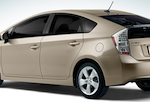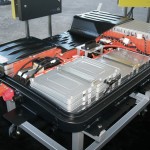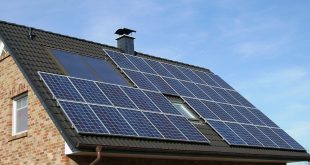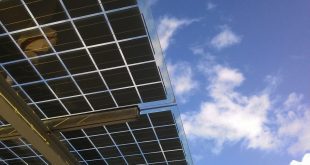The people of Japan are courageously moving forward after the devastation of a 9.0 earthquake, a tsunami that ripped apart buildings and roads, and a nuclear crisis that now threatens their food and water. The Japanese economy depends in no small measure on the success of its automotive industry and its complex eco-system of component suppliers and service providers.
Just when gasoline prices are rising and hybrid cars are again hot sellers, the crisis is making hybrids and new electric cars tough to get. Let’s look at the impact on three big sellers of hybrids and electrics.
Toyota, Honda, and Nissan are hurt less than expected because they have diversified globally, including billion dollar plants and operations in the United States. The most advanced hybrids and electric cars, however, are first produced in Japan. Every supplier must be able to produce for new cars to be assembled in Japan. Once assembled, it will be challenging to move them across roads not ripped apart. It will take time to return shipping ports to normal after the recent tsunami tossed cars and railcars around like toys. Plants and operations require MW of electricity, now constrained by nuclear plant shutdowns.
Toyota reports that all 13 North American vehicle and engine plants are running normally, although overtime has been curtailed to maintain adequate inventories of parts that come from Japan. Toyota now makes 12 different models in North America, including high-volume vehicles such as Camry, Corolla, RAV4, and Lexus RX 350, and nearly 70 percent of all Toyota and Lexus vehicles sold in the U.S. are made in North America.
Suppliers in North America provide most parts and materials for Toyota’s North American-built vehicles. Toyota has temporarily stopped all Japanese production of vehicles, but it is restarting production of replacement parts for cars already sold and parts necessary for overseas production. In general, Toyota is seeing adequate inventories at most dealers.
Prius vehicles are built in Japan, Steve Curtis with Toyota told me that the Tsutsumi plant where the Prius is made was not damaged by the earthquake. Production depends on more than the plant condition. It depends on a complex web of suppliers, supply of electricity, roads that can be crossed by employees and trucks deliveries parts. Toyota has delayed 12 Japan plant openings until March 26.
The tragedy in Japan has not delayed the U.S. launch of the new larger Prius V Crossover SUV and the Prius Plug-in Hybrid, not the new Toyota small electric city car. It has delayed the launch of the Prius wagon and minivan models in Japan from the original plan for the end of April. Reuters Article
Since the production of current Toyota and Lexus hybrids, depends on a complex supply chain, and shipment to the United States depends on roads and ports, Clean Fleet Report forecasts that shipments of Prius and other hybrids will be delayed and reduced for months.
States depends on roads and ports, Clean Fleet Report forecasts that shipments of Prius and other hybrids will be delayed and reduced for months.
Only one of three Toyota hybrid battery plants in Japan sustained limited damage from the earthquake. The other two plants are located in central Japan and were not affected. Panasonic and Sanyo are Toyota’s primary suppliers of nickel metal hydride and lithium batteries; their production status is uncertain.
Car dealers are betting that the supply of hot selling hybrids will be tight, especially with gasoline costing $4 per gallon in parts of the country. Auto News reports that dealers that were averaging $1,700 discounts on the Prius are now getting $800 premiums.
Honda
Honda is globally diversified in manufacturing and suppliers. With nine U.S. plants, Honda has invested more than $12.7 billion in its U.S. operations. The company employs nearly 25,000 associates and annually purchases $12 billion in parts and materials from more than 530 U.S. suppliers.
For hybrids such as the Civic Hybrid, Insight, CR-Z and Fit Hybrid, Honda also heavily depends on Japanese suppliers, including advanced battery suppliers such as Sanyo. At the heart of the 2012 Civic Hybrid and Honda’s new electric cars are the lithium-ion batteries built at its Blue Energy join venture (JV) with Japan’s GS Yuasa; the battery plant is in Fukuchiyama, Kyoto, Japan.
Last week, Honda had announced plans to resume production of major Japanese plants on March 20. Now these openings are delayed to March 27 or beyond. Like all major manufacturers, Honda depends on a complex eco-system of suppliers and joint ventures. Some plants have been damaged and roads to move parts have been ripped apart.
Nissan has delayed March 21 plans to restart production of parts for overseas manufacturing and repair parts, based on parts availability from suppliers, at these plants Oppama, Tochigi, Kyushu, Yokohama, Nissan Shatai. Vehicle production will be constrained by inventory availability. The Iwaki engine plant remains closed.
 Nissan recently shipped 600 Nissan LEAFs before earthquake and tsunami damage. At the Port of Hitachi, however, Nissan lost 1,300 U.S.-bound Infiniti and Nissan cars to the tsunami. Nissan had plans to soon have 10,000 LEAFs built at the Oppama plant. Now Nissan’s hopes of catching-up with U.S. deliveries of the Chevrolet Volt have faded in the near term.
Nissan recently shipped 600 Nissan LEAFs before earthquake and tsunami damage. At the Port of Hitachi, however, Nissan lost 1,300 U.S.-bound Infiniti and Nissan cars to the tsunami. Nissan had plans to soon have 10,000 LEAFs built at the Oppama plant. Now Nissan’s hopes of catching-up with U.S. deliveries of the Chevrolet Volt have faded in the near term.
Starting next year, Nissan’s Tennessee assembly plant will have the capacity to build 150,000 Nissan Leaf electric cars per year, and 200,000 lithium-ion battery packs per year. The lithium packs could also be used in future Nissan hybrid cars. The Tennessee battery production is by AESC, a joint venture of Nissan and NEC.
Once production returns to normal, U.S. shipments could still be delayed. Japan faces a fuel shortage. Fuel is needed to transport cars to ports, to run port drayage trucks and lifts, and to run ships. Even electric cars still depend on diesel to move them to market.
Related posts:
Toyota Readies 3 Electric Cars for 2012 Dealer Sales2010 Hybrid Cars with Best MPGHonda Fit Hybrid Challenges Toyota Prius LeadershipNew Cars that Already Meet 2016 Fuel Economy Standards2010 Cars Deliver Performance and Fuel EconomyElectric Cars for 20102010 Prius Delivers Record Mileage and Accelerates Plug-in PlansTop 10 Low Carbon Footprint Cars (and one SUV) for 2009Oil Price Soars – Electric Car Sales ZoomConsumers Continue to Demand Environmentally Friendly Cars and Automakers Respond with Electric, Plug-in Hybrids and Flex-Fuel ‘Green’ Vehicles
View the original article here
This post was made using the Auto Blogging Software from WebMagnates.org This line will not appear when posts are made after activating the software to full version.
 Alternative Energy HQ solar power for homes, wind energy, and bio fuel issues
Alternative Energy HQ solar power for homes, wind energy, and bio fuel issues







